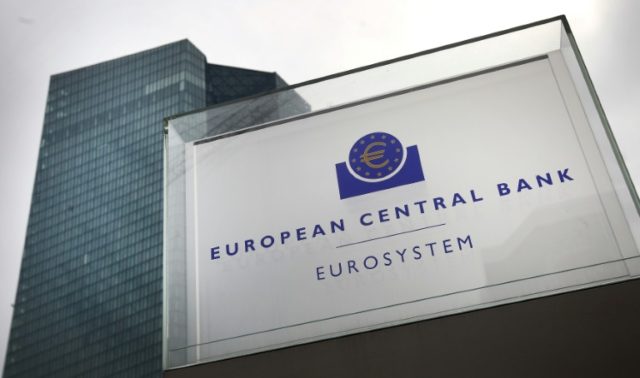Brussels (AFP) – Eurozone inflation rose to 2.2 percent in October, official data showed Wednesday, moving further away from the European Central Bank’s (ECB) target rate, as unemployment in the single currency zone remained stable.
The rise from 2.1 percent in September, driven by a hike in energy prices, marks another step up from the ECB’s aim of near to or lower than two percent and could add to pressure on the bank to end its crisis-era stimulus measures.
Unemployment in the 19-country eurozone stood at 8.1 percent in September, the same as the month before and the lowest figure since 2008.
The closely-watched core inflation figure — which strips out energy, food, alcohol and tobacco — also rose in October, reaching 1.1 percent compared with 0.9 percent the month before.
The headline figure, which is in line with forecasts by analysts quizzed by financial services firm Factset, was pushed up by a 10.6 percent rise in the cost of energy, driven by higher oil prices and a weaker euro.
ECB President Mario Draghi last week confirmed plans to end “quantitative easing” (QE) or mass bond-buying at the end of December.
Introduced in 2015, the scheme currently sees the bank buy billions of euros of government and corporate bonds per month, aiming to pump cash through the financial system to stoke lending, economic growth and inflation.
Draghi also insisted the ECB will keep interest rates at historic lows until late next year to support growth and encourage inflation towards the goal of just below 2.0 percent.
Tuesday brought disappointing growth data for the eurozone, with stagnation in Italy and problems with German car production dragging quarterly expansion to its slowest rate in four years.
GDP in the eurozone rose just 0.2 percent in the third quarter, partly as a result of zero growth in Italy, the area’s third biggest economy.
But Jennifer McKeown, chief European economist at Capital Economics, said the inflation rise “supports the ECB’s judgment that underlying price pressures are gradually rising despite the slowdown in activity over recent months”.
“We still see the ECB ending its asset purchases in December and we do not expect the recent slowdown in activity to cause it to alter its guidance that interest rates will start to rise after summer 2019,” McKeown said.

COMMENTS
Please let us know if you're having issues with commenting.